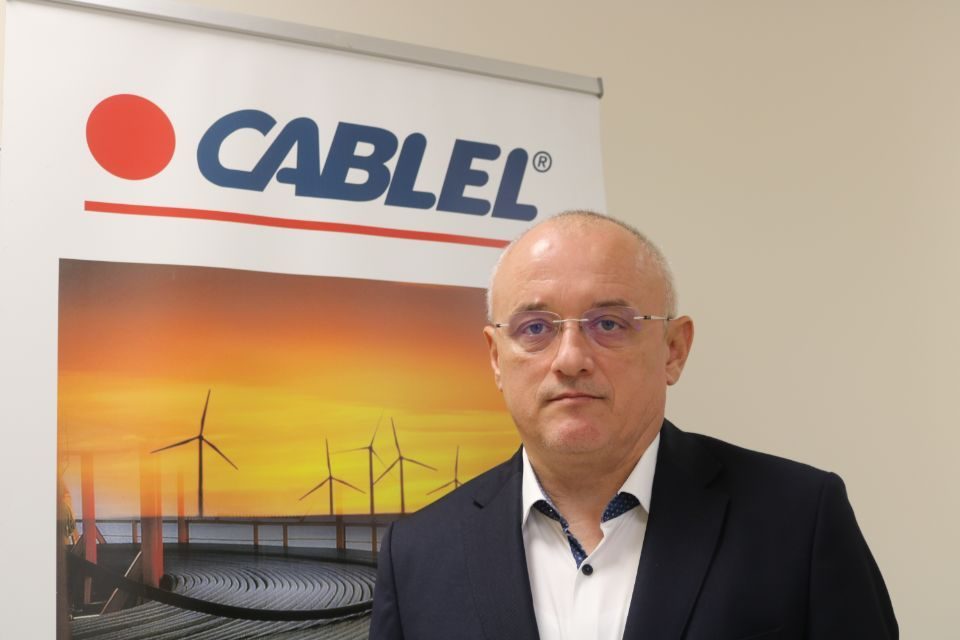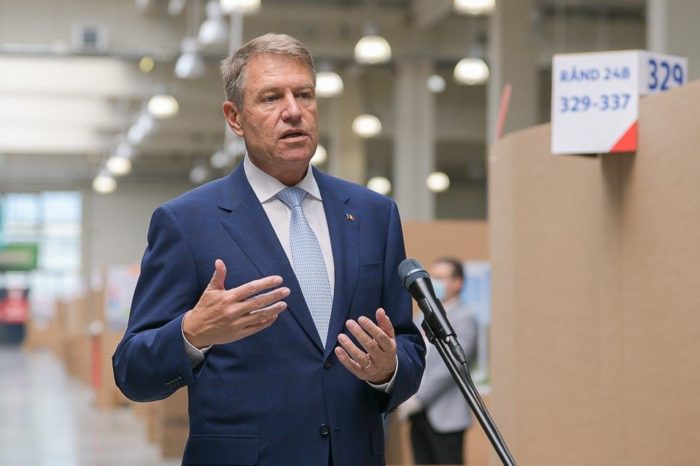INTERVIEW Eusebiu Muthi, Icme Ecab: “Romanian cables market was and still is very much affected by tremendous quantities of non-compliant products”

The Romanian cables market was and still is very much affected by tremendous quantities of non-compliant products coming either from imports or from local producers. This is happening due to a weak legislation and regulations concerning the buildings safety (industrial, offices, housing), but also due to a lack of Government funding for a Controlling Institution, according to Eusebiu Muthi, Deputy General Manager, Member of the BoD, Icme Ecab.
Icme Ecab is an important subsidiary company of Cablel Hellenic Cables Group since 1999, when the Hellenic Cables acquired most of its shares. The company is one of the most important cable manufacturers in Southeast Europe.
“For years, our business segment is being distorted by unfair competition and frauds, therefore our plans were to maintain the quality level of our products, to invest decent amounts in what was necessary to improve the competitiveness and reduce the costs,” Muthi told The Diplomat-Bucharest. “Until the authorities will take measures to clean our business segment environment, we will keep the same pace of investment and we will not plan extraordinary projects.”
What is your company’s business approach in the current economic context?
The business continuity is related to people and therefore our top priority in the past months was and is the health and safety of our personnel and of our stakeholders. Our 5 months results (in line with our budget) shows that our approach was correct and we did not face any case of positive case with SARS-COV-2. We took several measures: safety procedures with customers, suppliers, internal procedures for all our employees, we doubled the number of buses, we are providing masks and sanitising materials, wherever was possible we created conditions to work from home, etc. We kept a close contact with our stakeholders; thus, we did not face lack of orders and/or shortages of raw materials. We can say that the results in the domestic market of Romania were much better than what we budgeted for a normal period, even if the market itself shrunk during this period. It is obvious that imports were lower and some of our competitors faced supply problems during this period and we cashed the opportunity, having stock and production continuity.
What are the market tendencies in 2020?
It is difficult to do a forecast in such a volatile environment, but there are already signs in place for exports in Europe, as large infrastructure projects were frozen, factory acceptance test were delayed or performed via videoconferences and probably a slowdown will follow also in the wholesalers segment, as the consumption generally was reduced. On the other hand, thinking positively, we are expecting Governments and Utilities to release infrastructure projects both in Romania and in Europe, in order to have a faster recovery of the economies.
How would you describe the latest developments regarding the cables market?
The Romanian cables market was and still is very much affected by tremendous quantities of non-compliant products coming either from imports or from local producers. This is happening due to a weak legislation and regulations concerning the buildings safety (industrial, offices, housing), but also due to a lack of Government funding for a Controlling Institution.
At EU level a new Regulation (305) was issued since 2011 concerning the products used in Construction and it is in force in Romania as well. The problem is that the secondary legislation and the bodies/institutions that should enforce it are missing. The budget to do it is missing as well.
We are in a situation when the market is divided in two major segments: the important projects, where professional consultants are checking the product conformity and the price-oriented segment, which is flooded with non-compliant products. The 2nd segment is presenting a real danger for humans and assets and it is fuelled by companies that are doing unfair competition to the 1st segment and fraud (by selling a product which is not compliant).
What we noted during the pandemic, was that several companies in Romania decided not to take further risks concerning the quality of the products and decided to go for reputable producers, on the one hand, and also imports decreased, on the other hand. Thus, our sales in Romania in the first 5 months of 2020 were much better than what we budgeted for a normal business environment.
The export sales were as budgeted until April, while in May and June we noticed a slowdown, but not extremely significant.
How would you alleviate Romania’s economic stress after this crisis?
Romanian business sector is tied up to the EU economy, so basically the rhythm of European recovery will directly influence the recovery of Romanian economy. What can make the difference? It is being discussed in the media that EU will allocate some €30 billion for our country. Personally, I think that a major part of the amount should go to infrastructure projects (highways, railways, transport and distribution of electricity) and agriculture (irrigation and funding schemes for Romanian farmers).
What are your short and medium-term plans in Romania?
For years, our business segment is being distorted by unfair competition and frauds, therefore our plans were to maintain the quality level of our products, to invest decent amounts in what was necessary to improve the competitiveness and reduce the costs.
Until the authorities will take measures to clean our business segment environment, we will keep the same pace of investment and we will not plan extraordinary projects.













